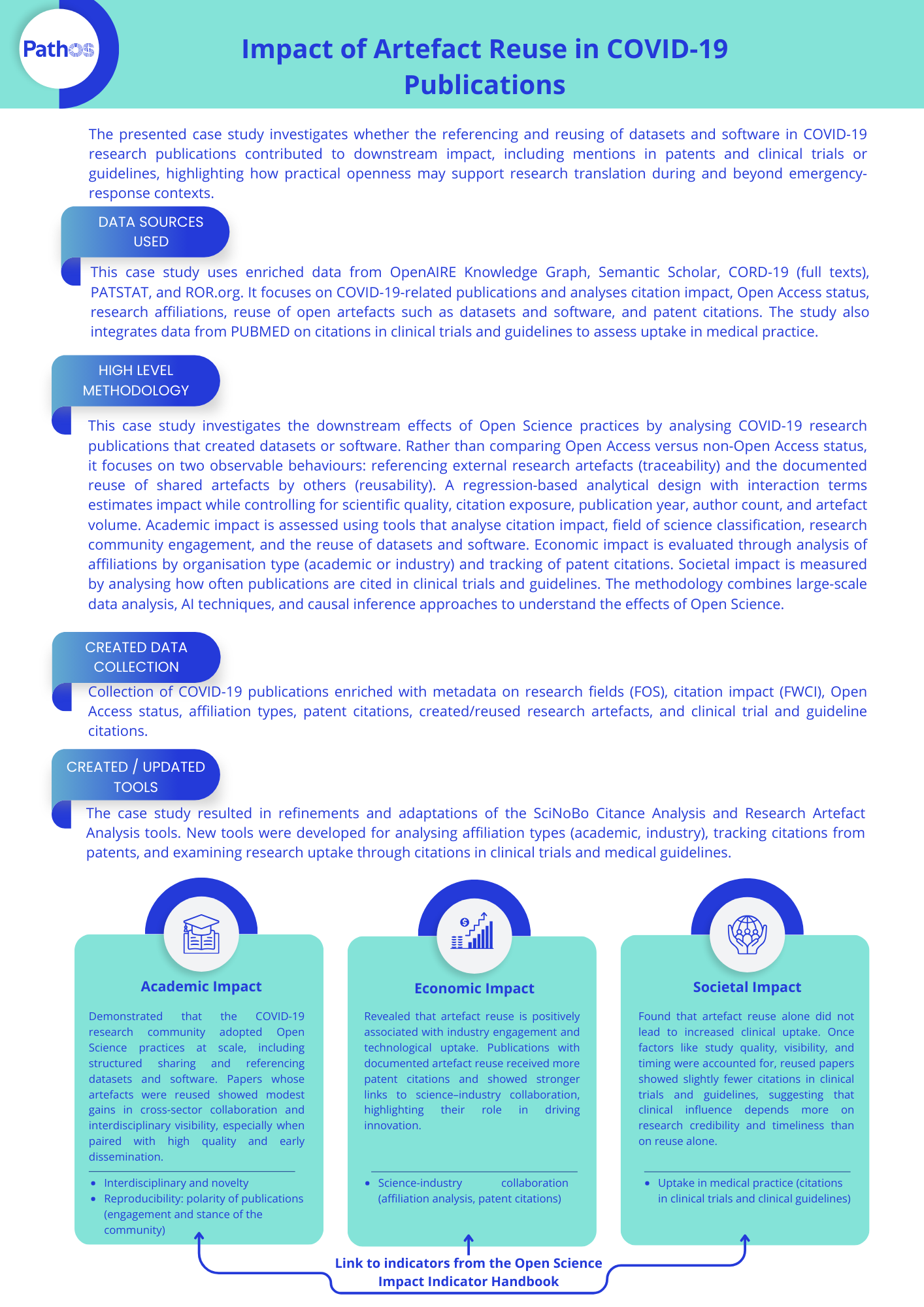Impact of Artefact Reuse in COVID-19 Publications
About This Case Study
This case study examines how Open Artefacts (datasets, software) influence the adoption of COVID-19 scientific developments in industry and clinical practice. The COVID-19 pandemic presented an unprecedented global challenge, requiring rapid scientific action and effective dissemination of research findings. In response, the scientific community embraced Open Science (OS) practices, emphasizing collaboration, data sharing, and transparency to meet the urgent demand for treatments and solutions.
Using a quantitative and data-driven methodology, PathOS will compare Open Access (OA) vs. non-OA publications to establish the impact of openly shared research outputs on critical areas such as science-industry collaboration, artifact reuse and quality, and clinical adoption. This includes assessing whether OA strengthens partnerships with industry, as evidenced by affiliations and patents, and whether it facilitates greater reuse and perceived quality of research artifacts. Additionally, the study evaluates the role of OA in driving clinical uptake by analyzing citations in clinical trials and related healthcare applications.
The case study draws on tools and methodologies from related DG-RTD studies, including MOAP Study, Reproducibility – RTD/2020/SC/10, and Monitoring and evaluation of the Framework Programme for research and innovation along Key Impact Pathways – RTD/2019/SC/016. The study mobilizes expertise from EU Policy officers, JRC experts, and stakeholders from Europe PMC/bioRxiv/medRxiv, publishers, and other repositories relevant to COVID-19 research.
This research provides actionable insights for funders, showcasing the outcomes of their investments in OS initiatives; for scientists, emphasizing the benefits and challenges of Open Artefacts; and for policymakers, guiding the refinement of data-sharing protocols for future crises. The general public also benefits from understanding how Open Science accelerates the translation of research into tangible solutions to societal challenges.
By investigating the role of Open Artefacts in advancing science and fostering practical applications during the COVID-19 pandemic, this study underscores the importance of transparent and inclusive scientific practices in addressing urgent global issues.
Explore PathOS Case Studies: Methods, Data, and Tools
Are you curious to learn more about how PathOS carried out its case studies? Would you like to replicate our methods, reuse our indicators, or explore the workflows behind our analyses?
You can dive deeper into our technical approach, data pipelines, and indicator implementation in the resources below:
-
Data & Tools for the Long-term Evaluation of Open Science - a reference guide supporting reusability of PathOS datasets, workflows, and computational tools for OS impact evaluation.
-
Open Science Impact Indicators for Case Studies – Final Report - insights from six case studies showing how Open Science impacts vary across disciplines, infrastructures, and national contexts.
And make sure to check out our PathOS Toolkit at GitHub!

